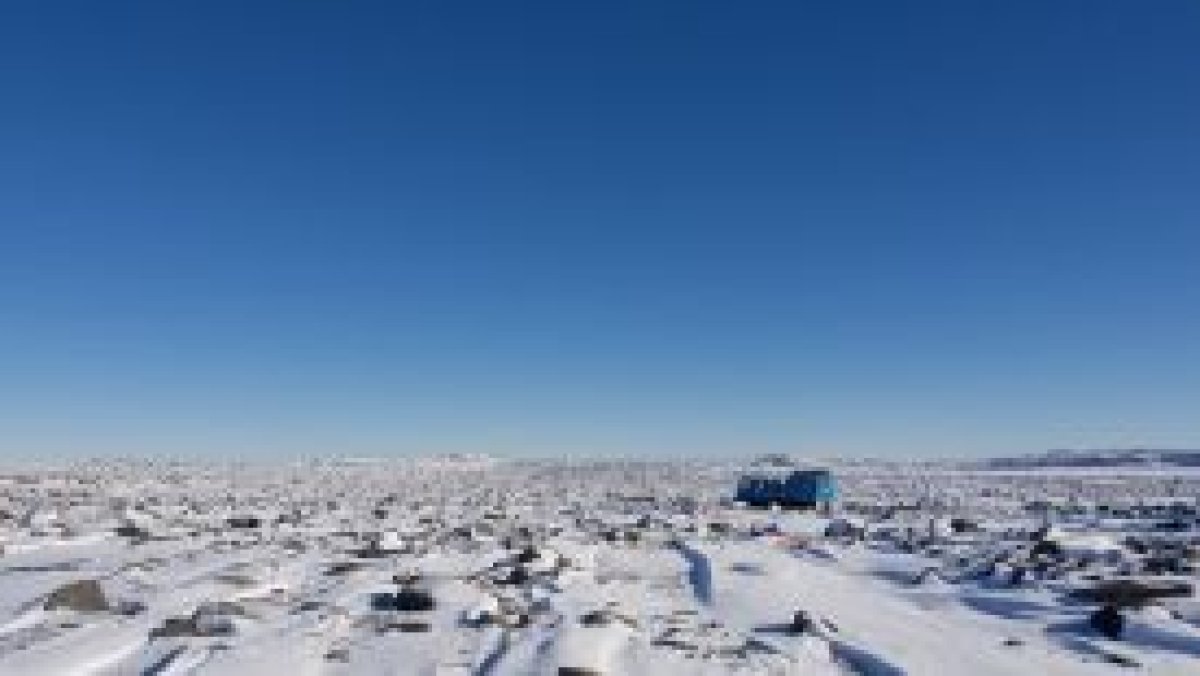
Certain microbes in Antarctica have been surviving on nothing but atmospheric energy. If they can do it, why couldn't aliens?
In 2014, a team of researchers from institutions across Australia and New Zealand collected soil samples from two ice-free sites along the eastern Antarctic coast. They wanted to understand how microscopic life managed to get everything it needed to survive in such an inhospitable environment. They reconstructed the genomes of nearly two dozen microbes and identified two kinds of previously undiscovered bacteria: WPS-2 and AD3.
"They were in extremely high abundance which was never observed before," senior author Belinda Ferrari, who leads the single-cell microbiology lab at the University of New South Wales, told Newsweek over email. "So that's why we then decided to carry out genomics to gain insights into what these bacteria do."
As it turns out, WPS-2 and AD3 actually don't need anything—they extract energy and carbon from hydrogen, carbon monoxide and carbon dioxide in the air. The discovery opens up the tantalizing possibility that on other planets, life forms that need only atmospheric gas to survive exist, too. The results of the discovery were recently published in the scientific journal Nature.
Bacterium are scrappy survivalists. As the researchers wrote in their paper, terrestrial Antarctica is one of the most extreme environments on Earth. Between the freezing temperatures, high UV radiation exposure, and limited carbon, nitrogen and water, Antarctica really has no business supporting any kind of life. And yet, wrote the scientists, a "surprising diversity" of microbacteria thrives there.

"Extremophile" bacteria, as the Independent reported, can survive in the harshest conditions on (and hopefully off) Earth. Conditions on Antarctica are similar to conditions on certain moons and exoplanets, which is why Antarctica, like volcanoes in Hawaii or bogs in Ethiopia, makes a useful parallel for scientists trying to better understand how anything survives on other worlds.
"The big question has been how the microbes can survive when there is little water, the soils are very low in organic carbon and there is very little capacity to produce energy from the sun via photosynthesis during the winter darkness," Ferrari said in a university press release. "We found that the Antarctic microbes have evolved mechanisms to live on air instead."
The microbes have key genes that give them a "high affinity" for hydrogen and carbon monoxide. This means they're physiologically set up to basically suck whatever trace gases they need from the air, and that they can do so quickly and easily enough to sustain themselves.
Much of the hype about the ongoing search for alien life is focused on Mars, but of equal importance are icy moons like Enceladus and Europa—which respectively orbit Saturn and Jupiter—that look a lot more like Antarctica. According to NASA, celestial bodies with liquid water oceans beneath their surface ice are ripe for microbial life. On ancient Earth, it came from hot primordial soup; on frozen moons, it still could.
There's warmth deep underneath the icy exterior, which is how those places might still sustain life, and is also how my friends introduce me at parties. And maybe on other worlds, life could evolve and thrive on just whatever's hanging around the atmosphere.
Uncommon Knowledge
Newsweek is committed to challenging conventional wisdom and finding connections in the search for common ground.
Newsweek is committed to challenging conventional wisdom and finding connections in the search for common ground.
About the writer
Kastalia Medrano is a Manhattan-based journalist whose writing has appeared at outlets like Pacific Standard, VICE, National Geographic, the Paris Review Daily, ... Read more
To read how Newsweek uses AI as a newsroom tool, Click here.








